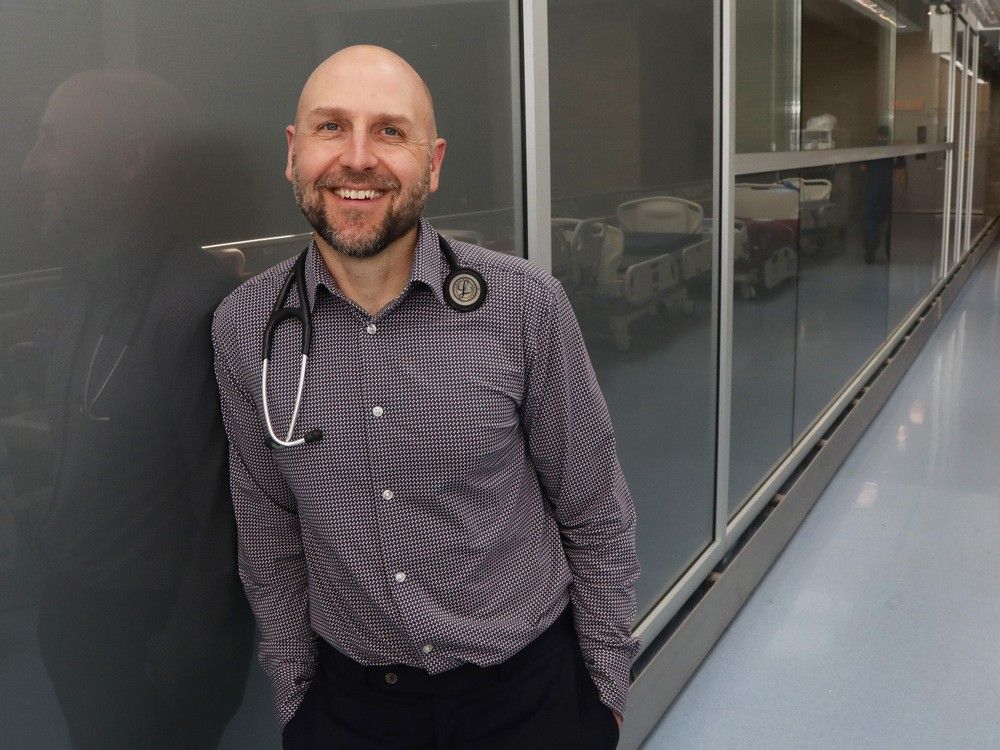The Ottawa Hospital Research Institute is the first international site of a research network aimed at accelerating the understanding of bipolar disorder and transforming care for people who live with it.
Bipolar disorder affects an estimated 40 million people around the world, including about 800,000 in Canada. In many cases, the disorder remains difficult to diagnose and treat effectively.
Dr. Jess Fiedorowicz, senior researcher and head of the department of mental health at The Ottawa Hospital, was awarded a grant worth more than $3 million to lead the first Canadian site of the Breakthrough Discoveries for Thriving with Bipolar Disorder Integrated Network (BD2) in a partnership with Brain Canada.
The funding will support a longitudinal study of 100 participants in Ottawa, said Fiedorowicz, who hopes an additional 200 patients undergoing treatment at The Ottawa Hospital will eventually be able to participate in the study. It will include advanced brain imaging and monitoring and is part of a global study that will eventually include 4,000 patients.
The funding also supports a learning health network that will use data and integration to improve patient care, Fiedorowicz said.
The investment in bipolar disorder is badly needed, said Pamela Kanellis, chief research and program officer with Brain Canada.
“There is a dearth of funding to address bipolar disorder,” she said.
Kanellis noted that it took, on average, seven years for patients to get diagnosed, misdiagnoses were frequent and many people were suicidal while they waited for diagnoses and treatments.
“This is a dramatic disease that we need to get ahold of better,” she said.
Among the key challenges are delays in diagnosing patients and difficulty finding treatments that work.
More than 70 per cent of people with bipolar disorder are initially misdiagnosed, health officials say, and less than half find effective treatments.
“It is a challenging diagnosis, even as an expert,” Fiedorowicz said. “One of the challenges is that bipolar disorder can present differently over time.”
Bipolar disorder is characterized by periods of depression and mood elevation — mania — as well as periods without marked symptoms.
Research for bipolar disorder has long lacked “coordination, collaboration and innovation,” said Cara Altimus, the managing director of BD2.
The partnership with The Ottawa Hospital and Brain Canada, Altimus said, “will bring us closer to realizing our mission to shorten the time it takes to translate research findings to improve care.”
Fiedorowicz says The Ottawa Hospital has moved to evidence-based care, something not always done with bipolar patients. That includes gathering and using data from patients to assess how they are doing and how their treatments are working.
Without that data, he says, it can be difficult for health professionals and even patients to assess whether treatment is effective.
Lithium is considered the gold standard treatment for bipolar disorder, Fiedorowicz said, but it doesn’t work for all patients.
Access to health care is an issue for patients with bipolar disorder, he added, which means patients often end up in emergency departments.
“We are in desperate need of more and better organized services,” Fiedorowicz said. “What people need is longitudinal care in the community.”
Fiedorowicz said he hoped that participation in the bipolar research network would spur changes to how and where services were offered in the region.
“We are hoping to improve the care we have. I would love to use this as a springboard.”
Researchers and contributors from The Ottawa Hospital, the University of Ottawa and the Royal’s Institute of Mental Health Research are part of the new initiative. Fiedorowicz is lead principal investigator.
Related
- New government won’t rule out full return to office for public servants
- Ottawa cop demoted for assaulting handcuffed boy at CHEO



